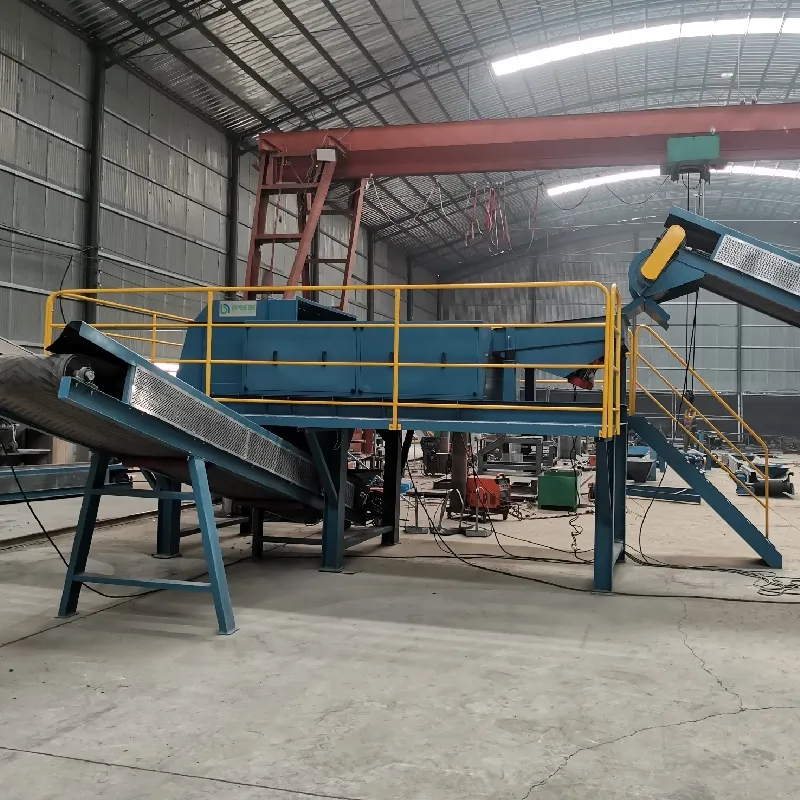

дец . 03, 2024 16:56 Back to list
The Importance of Iron Recycling Plants A Sustainable Future
As the global demand for iron and steel continues to rise, the importance of recycling iron becomes increasingly critical. In a world where resources are finite, iron recycling plants play a vital role in ensuring a sustainable future by converting scrap metal into reusable materials. This article explores the significance, processes, and benefits of iron recycling plants in today's economy.
Firstly, the benefits of recycling iron are manifold. Iron is one of the most recycled materials in the world, with up to 98% of scrap iron being repurposed into new products. Recycling iron reduces the need for virgin raw materials, conserves natural resources, and minimizes energy consumption. It is estimated that recycling one ton of steel can save approximately 1,400 kilograms of iron ore, 700 kilograms of coal, and 120 kilograms of limestone. By reducing the extraction of these materials, iron recycling helps to preserve ecosystems and combat habitat destruction.
Iron recycling plants utilize several advanced processes to transform scrap iron into high-quality raw materials. The recycling process generally begins with the collection and sorting of scrap metal. This can come from various sources, including construction sites, manufacturing waste, and old vehicles. Once collected, the scrap is sorted based on its type and quality. This is an essential step, as the purity of the recycled iron affects the final product. For instance, high-grade steel requires less processing and often yields better quality results.
After sorting, the scrap iron is shredded into smaller pieces, which facilitates easier melting. The shredded metal is then fed into a furnace, typically an electric arc furnace (EAF) or a basic oxygen furnace (BOF), where it is melted down at high temperatures. The melted iron can then be purified and alloyed with other elements as needed to create specific types of steel. Once cooled and solidified, the recycled iron is transformed into various products, including new steel sheets, beams, and even car parts.

The economic benefits of iron recycling plants are also significant. By providing jobs and supporting local economies, these facilities contribute to the overall health of the community. Moreover, recycling plants can often operate more economically than traditional mills, as the cost of recycled materials is generally lower than that of extracting and processing raw materials. This dynamic creates a competitive advantage for industries relying on recycled inputs, ultimately lowering the cost of consumer products while promoting sustainable practices.
Environmental considerations further underscore the importance of iron recycling plants. The steel industry is a major contributor to global greenhouse gas emissions, largely due to the mining and processing of raw materials. By reducing reliance on virgin materials, recycling iron leads to lower carbon emissions and decreases energy consumption. Additionally, recycling prevents scrap metal from ending up in landfills, where it can take decades to decompose and can release toxins into the soil and water.
Despite the advantages, iron recycling is not without challenges. The fluctuating market prices of scrap metal can impact the economic viability of recycling plants, and contamination of scrap materials can lead to lower-quality recycled products. However, advancements in sorting technology and process optimization continue to improve efficiency and quality in the recycling industry.
In conclusion, iron recycling plants are essential components of a sustainable future. By effectively converting scrap iron into new products, these facilities play a crucial role in conserving natural resources, reducing environmental impact, and supporting local economies. As society continues to face the challenges of resource depletion and environmental degradation, investing in and promoting iron recycling will be integral to achieving long-term sustainability. The path ahead is clear fostering a circular economy through the recycling of iron is not just beneficial but necessary for the health of our planet and future generations.
Latest news
Troubleshooting Common Eddy Separator Problems
NewsJul.04,2025
The Role of Metal Recycling Plants in Circular Economy
NewsJul.04,2025
The Impact of Recycling Line Pickers on Waste Management Costs
NewsJul.04,2025
Safety Features Every Metal Shredder Should Have
NewsJul.04,2025
How Industrial Shredders Improve Waste Management Systems
NewsJul.04,2025
How Cable Granulators Contribute to Sustainable Recycling
NewsJul.04,2025